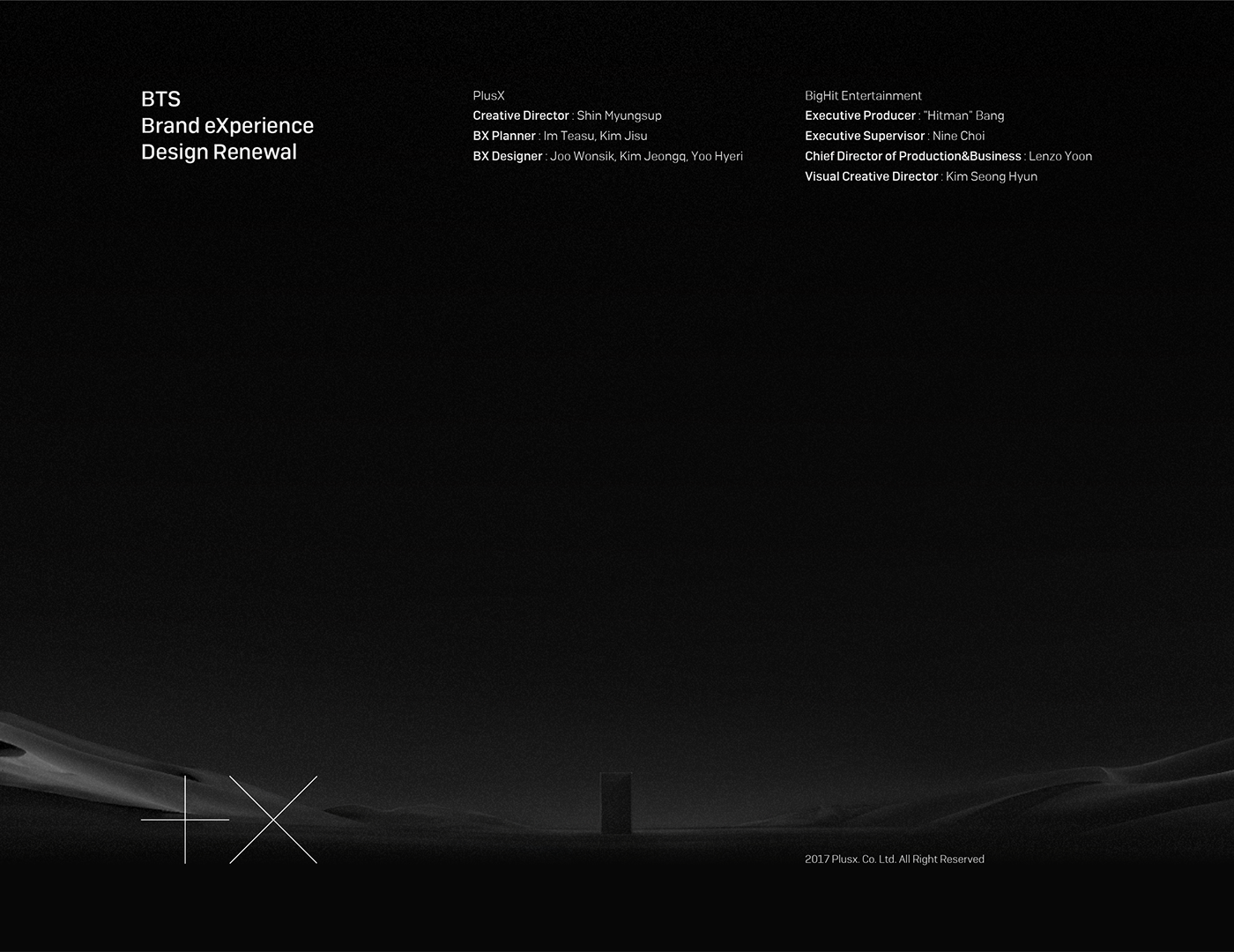"Somehow BTS has stimulated a great love for them among the BTS ARMY. It's almost like a marriage, certainly like a love affair between the BTS and the ARMY. I think they support each other and they’re very devoted to each other." Dr. Murray Stein, American Jungian analyst and author of “Jung’s Map of the Soul: An Introduction” which has inspired BTS's most recent “Map of the Soul” album series
When I first started writing this analysis on the rise of BTS, there was no ARMY section. I assumed that ARMY was just a little more passionate and a lot more social media savvy than other fandoms, but otherwise quite typical of fans who are appreciative consumers of all the great content and talent that the object of their affection puts out. I didn’t initially believe that ARMY was a major driver in and of themselves of BTS's success, because there was little precedent in the West, whether in sports or entertainment, where the fandom would qualify as one of the key reasons that a particular team or celebrity succeeds. And thus, I was focused on figuring out how the skill and talent of the members of BTS and the strategies and tactics of their company, Big Hit, contributed to the group’s success.
But as I went deeper and deeper into the BTS universe, I realized just how central ARMY is to their success and it helped me re-frame the analysis to emphasize the great extent to which BTS and Big Hit cultivated the fan-artist relationship.
Big Hit doesn’t just pay lip service, like some companies do, to being “customer obsessed.” The company has been very clear in their actions and words that their fans are at the centre of its business model. Big Hit’s Global CEO Lenzo Yoon told Forbes: “Good songs are important, but what fans really care about is communicating with their artists. Our fans are everything—I want to emphasize that. We are constantly asking. ‘How can we improve ourselves?’”
In my immersion these last few months into the BTS ARMY, I’ve learned that the fandom has contributed an immense amount of labour in helping BTS break through the Korean language barrier to reach and acquire new fans. BTS’s underdog status throughout their career has created an emotionally resonant sense of community amongst the fandom that fuels an intense drive to continue to promote and protect the group, no matter how popular they get. Fans are equally as passionate in their desire to immerse themselves in the BTS Universe because they’ve found the artistry and intention underpinning the colossal volume of content that BTS has released to be fertile ground for study and analysis. And finally, this sense of community has transformed ARMY into a group who has an enormous degree of cultural and political power in its own right.
A Chip on their Shoulder
The equivalent to “muggles” (from Harry Potter) in the BTS Universe are “locals”: people who, usually because of the language barrier, have not yet discovered the magic of BTS. When one becomes a part of the fandom, there is a real sense of being part of an “in-group,” a term from social identity theory in psychology that describes how a person’s sense of who they are is derived from their feeling of belonging within social groups.
I believe that ARMY’s sense of identity and passion has been further reinforced within the ARMY by BTS’s underdog reputation, first within the K-pop community and later on within the global entertainment culture.
BTS had a classic “underdog” origin story from the very beginning. They were from a small company outside of the Big Three system, Big Hit, which was so financially strapped that eight people (seven members and a manager) slept in a small two-bedroom apartment. Big Hit didn’t have strong relationships (or the money to grease the wheels) with the Korean music shows, so BTS were often cut from these vital promotional broadcasts. Their name and concept was laughed at by everyone in the Korean music industry and nobody expected them to make it. When they gained some success in Korea, the group was hit by a series of scandals (including plagiarism and misogyny) that fans believe were instigated by other entertainment companies and other K-pop fandoms jealous of their growing success.
This fan-created video documents the hardships that BTS endured on their rise to the top:
You would think that BTS's global dominance in 2020 would mean that this chip on ARMY’s shoulder would fade. But no - it’s continued. Some old grievances that linger, despite truly objective success, include: that mainstream media still doesn’t understand their appeal and misrepresents and mis-characterizes the group, that radio stations don’t play BTS songs (although that appears to be finally lifting with the promotional push behind “Dynamite”), that the fandom and BTS are still dismissed as niche and the domain of teenage girls, and that “boy band” or K-pop music is not seen as valid or important art.
Other grievances are newer and have emerged along their rise, primarily in the same vein of respect and acknowledgement. How YouTube deletes the group's video views is an ongoing sore point in the fandom, and ARMY seems to be on constant alert for how others in the industry are plotting their downfall through manufactured scandal.
Feeling like the underdog creates more loyalty. As a fan, you don’t think that Justin Bieber or Beyoncé are struggling to prove themselves in any way. But fans of BTS, whose success globally rivals those two artists, feel like the group is constantly maligned and misunderstood by mainstream media. So the importance of supporting them in all the ways that a fan can, through buying, voting, streaming, producing, tweeting, etc., are all heightened.
While this is likely not a deliberate strategy that Big Hit has manufactured or engineered in its management of BTS, I wanted to share this element to help you understand that some of ARMY’s fervour has been fueled by a sense of defiance. If you do a little digging, you’ll notice that much of the fan-generated content across social and streaming platforms have as much of a protectionist undertone as they do promotional or educational.
As one fan analysis astutely observes:
“As much as they are the group’s supporters, ARMY often behave as producers, translating their fervour into ambition. Inasmuch as BTS enables safe spaces for ARMYs, ARMYs have created spaces that did not exist before for a group like BTS — in which they are able to develop their creative prowess… As the group reap the rewards of their own work, they enable their fans to claim actual power for themselves too — as one fan put it, “When BTS wins, I feel like I win.”
Symbiotic Investment in Success
“With the wings ARMY gave us, we were able to fly.” Jungkook of BTS, in Episode 7 of their 2020 docuseries, Break the Silence
In a world where “frictionless” convenient transactions are the holy grail of most business strategies, which Amazon has truly mastered with its patented 1-click ordering or Amazon Go, seven men who mostly only speak and sing in Korean is not exactly a recipe for success, no matter how attractive they are or how slick their production values are. While music is universal, you would think that there would be an insurmountable wall to connecting with lyrics and sentiments you don’t immediately understand.
This is where ARMY steps in: the vast majority of BTS content is translated by fans. Within hours upon release, entire songs, filmed shows, vlogs and livestreams, speeches, interviews, etc. are translated into a multitude of languages to service the insatiable demand of a truly global, 24/7 ARMY.
Big Hit has had a sporadic history of providing translations, and only officially started to provide English translations of the group’s free, non-music video, content on YouTube in January 2020. On the V Live platform, which BTS began to use in 2015, there were initially official translations into the major languages of their fanbase (English, Japanese, Chinese, Spanish, Portuguese, Indonesian, Vietnamese, Thai), which largely reflect both BTS's fanbase and where hallyu content (including K-dramas) has been popular over the past two decades. All the translations to other languages are fan-contributed. (There are rabid BTS fans everywhere so anecdotally from my time being immersed in the fandom, I’ve noticed that in addition to the countries who speak the languages I just mentioned, Russia and the UAE have distinctly large and passionate ARMY members whose languages are not officially supported by Big Hit or V Live official translations.)
Fans also put a lot of labour into promoting BTS and encouraging other fans to engage in many forms of purchasing behaviour. Especially around the release of new music, fan accounts will put a lot of effort into explaining how best to stream and purchase music to provide the biggest boost and help BTS in reaching ever greater records. Fans host streaming parties, set up funds to distribute money so that other fans can purchase BTS music, and disseminate and amplify purchasing strategies and tactics. BTS has reached dizzying heights in both sales records and awards and most of that success can be attributed to the fandom.
Intentional strategy or not, this reliance on fan labor develops a truly symbiotic investment in success between the band and its fans. The band’s success in attracting new I-ARMY (i.e., International ARMY) is directly correlated with the tireless efforts of its most dedicated fans. And growing the international fanbase has truly been the rocket fuel for BTS's historic achievements. As discussed in many analyses of South Korea’s cultural export strategy, hallyu or “Korean Wave,” the South Korean domestic market is simply too small, leading even small companies like Big Hit (back in the early 2010s) to craft entertainment with the explicit intention of attracting fans from initially the greater Asian continent, and now with the influence of BTS (and other so-called 3rd and 4th generation K-pop groups including BLACKPINK, the most dominant girl group in the world) and the Netflix effect on Korean drama distribution, the entire world.
When I first went down the rabbit hole of BTS content, I found the incessant references to ARMY that the members made to be rather suffocating and over-the-top. I chalked up this uncomfortable reaction to the big disconnect with my Western cultural norms, where artists are of course grateful for their fan support but in a benevolent greater-than-thou tone: “Yes, thank you for appreciating my immense talent.”
As I started to realize the scope and scale of just how much ARMY loved and supported BTS, it all made sense. The BTS members are very much aware that as much as they work hard to deliver meaningful music, beautiful performances and fun behind-the-scenes content, the only reason they made it to the UN, the Grammys, and the cover of TIME Magazine, amongst other incredible achievements previously unthinkable for Korean idol groups, is because of the dedication of their ARMY. BTS pays homage to the symbiosis and interdependence they have with ARMY constantly in their lyrics.
When I first embarked on my journey to becoming a member of ARMY, I started off by watching their English language content but felt that their English interviews were a bit stilted and awkward given the language and cultural barrier. Then, I started being served by the YouTube algorithm English-language translated content compilations, all produced by ARMY. To give you some idea of the different categories of content, here are a few sample titles:
- Explanatory: BTS Spring Day MV EXPLAINED | Sewol Ferry, Snowpiercer & Survivors, BTS’s Contribution to Music, Agust-D - Daechwita '대취타' Explained By A Korean
- Iconic / Memorable / Funny Moments: Favourite BTS Funny and Cute Moments from Run BTS, BTS being Extra AF in America (this one has 20 million views)
- Member Compilations: Struggles and Victories of Kim Seokjin: The Underestimated Genius, Brilliance & Strength of BTS Jin, The Underrated Intelligence of BTS Park Jimin: Profound Thinker, Street Smart & Creative Genius
- Evidence of “ships” between two members (fan fiction staple content of bromances and fan fantasy fulfillment of potentially more): Is Jungkook hinting that Jikook is real?, Namjin Sharing Two Brain Cells

It was through these edits that I started to understand more of the story of their rise and the different facets of their personalities. There was such a diversity of content used in these compilations that I found myself wanting to understand more and going to the source of where the accounts had clipped these sequences from.
What many ARMY point to as a real breakthrough moment amongst the group’s English-language appearances is James Corden’s Carpool Karaoke. More than their impressive appearance on Jimmy Fallon filming their performance of “ON” in Grand Central Station which occurred during the same promotional period, the Carpool Karaoke episode was the first time American audiences could get a sense of their individual and collective personalities while being introduced to their songs and talent as artists and performers. Props to both the Big Hit and Corden teams - it’s hard to script a better or more organic showcase of BTS as BTS given the language limitations.

Esteem in Supporting BTS
BTS’s ever-growing popularity has created feelings of self-esteem for fans of BTS. Many feel some sense of pride of being first or “early” (or earlier than peers) to recognizing BTS’s talent and artistry. With all the opportunities to co-create stories with BTS through their narrative universes between fan fiction on platforms like AO3 and Wattpad and Big Hit’s BTS video game ventures, fans also have the opportunity to develop and flex their creativity and gain validation for their imagination.
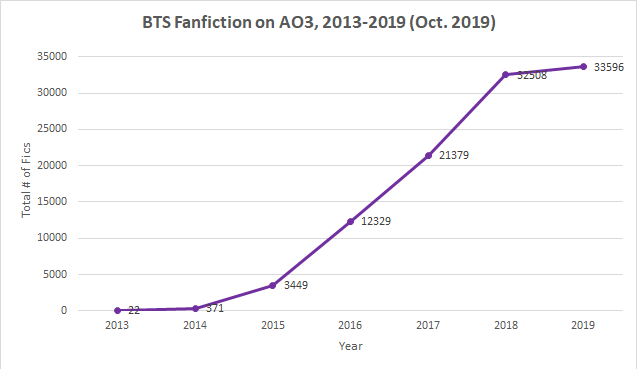
For fans who are BTS content creators, one big potential “payoff” psychologically is the development of a large online following. It’s not unusual to see these dedicated fan accounts have millions of followers, whether they are on Twitter, YouTube or Instagram.
Many YouTube creators, who might not have been BTS fans to begin with, have leveraged the intense interest in the group to increase their own followings. Reaction videos are a popular category on YouTube, and have been a way for new and existing fans to appreciate more elements of the group. I’ve included a few examples if you’re interested in seeing some of these popular reactions:



So really, BTS has more reason than any artist or group to be grounded in their success and wanting to do right by their fans. And this creates a virtuous cycle. You rarely hear of diva behaviour or entitlement from anyone who has ever dealt with them on or off screen. This feeds into the endless content they’re filming of themselves in front of or behind the camera to endear themselves further with fans. This also enhances the desire to create music that sends a positive and inspirational message. And fans ultimately lift them up to greater and greater heights.
This is what BTS leader RM wrote upon the release of their latest album, Map of the Soul: 7, thanking ARMY for their support:
Map of the Soul : 7 Thanks-to,
— doolset🍊 (@doolsetbangtan) March 26, 2020
from Namjoon 🐨 @BTS_twt pic.twitter.com/h2Xry9ZhOj
More on Fan Translations in K-pop and ARMY:
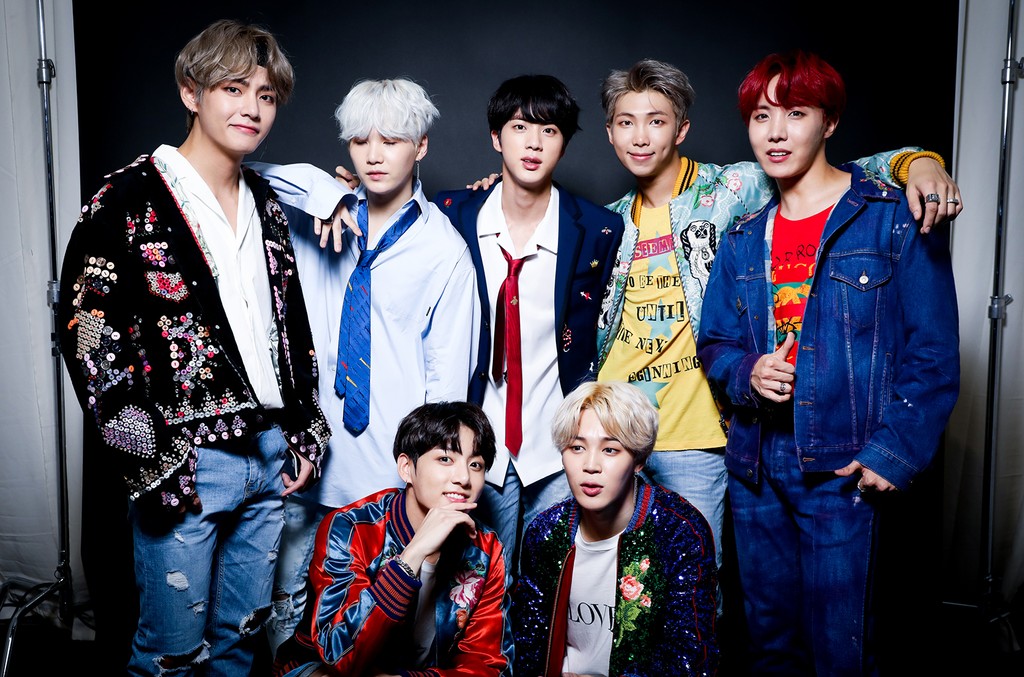
Activism, Academia and Beyond
Whatever the interest, fans can find their own community and sense of belonging within ARMY.
Some readers may have first encountered ARMY through the recent headlines of K-pop activism during the Black Lives Matter movement in June 2020.

If you were wondering why K-pop fans, and ARMY in particular, cared about politics or taking a stand on subjects not involving their favourite band, it’s because they took to heart the message from their idols (“love yourself, speak yourself”) and had the digital literacy to be extraordinarily effective in their activism.
BTS stands out in K-pop for their willingness to wade into and put their support behind causes not typically discussed by idol groups, and have done so throughout their career. Recently, BTS made headlines for tweeting their solidarity with Black Lives Matter and donating $1 million to the cause.
우리는 인종차별에 반대합니다.
— 방탄소년단 (@BTS_twt) June 4, 2020
우리는 폭력에 반대합니다.
나, 당신, 우리 모두는 존중받을 권리가 있습니다. 함께 하겠습니다.
We stand against racial discrimination.
We condemn violence.
You, I and we all have the right to be respected. We will stand together.#BlackLivesMatter
ARMY responded by matching the group’s donation within 24 hrs.
The fandom’s digital literacy is a necessary result of circumstance, says Miranda Ruth Larsen, a K-pop scholar and fan at the University of Tokyo. “These skills are the same set found in any transcultural fandom where accessing source text, media, and goods requires coordinated effort,” she explains. “In K-pop’s case, during the past few years, the streaming culture fandoms have pushed themselves to the forefront, and for better and for worse, disseminated tools and tactics easily.”
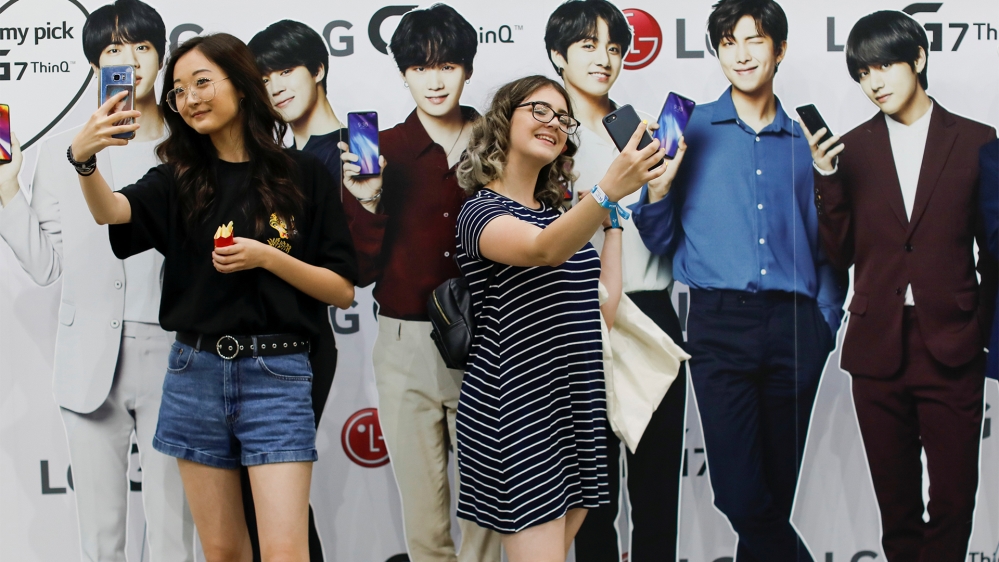
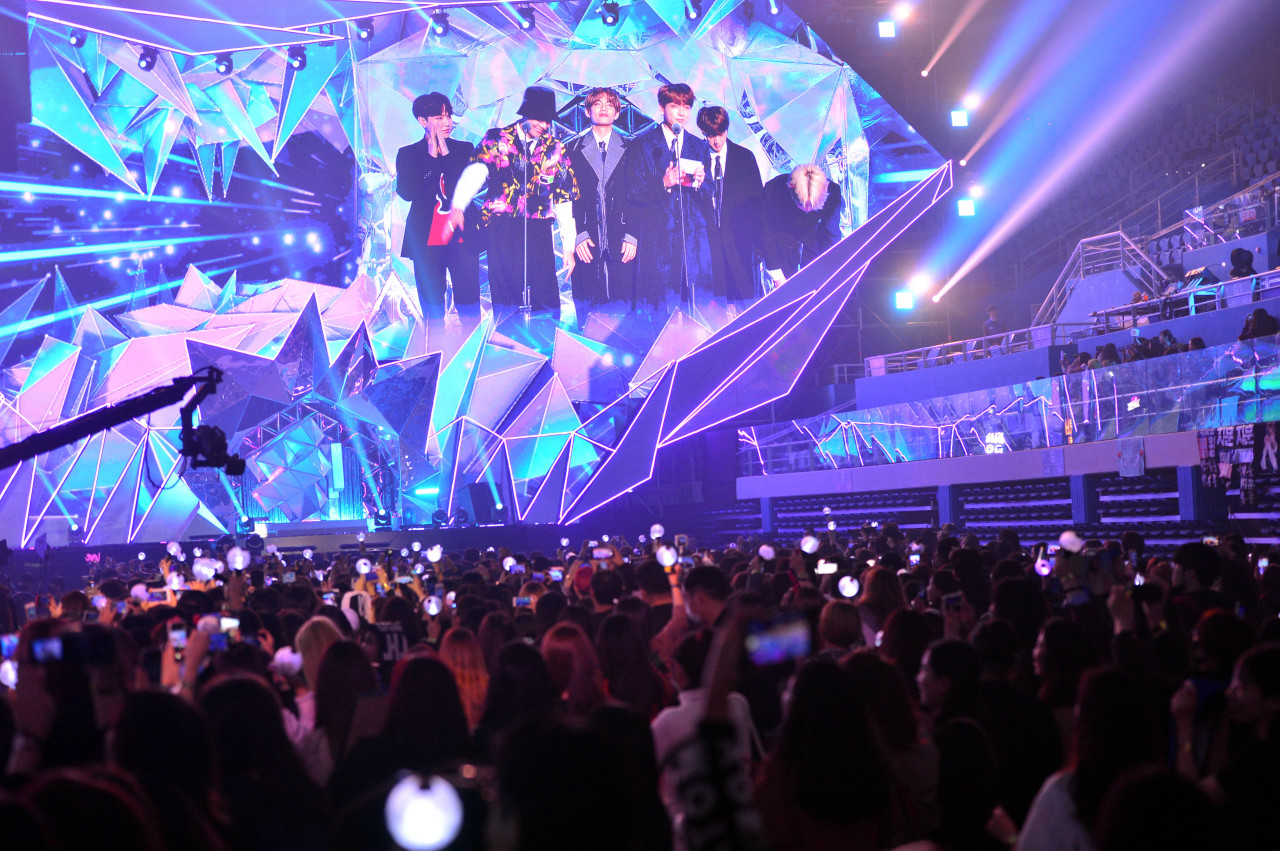

BTS in Academia
Fans in academia have realized that BTS provides fertile ground for study. In January 2020, the first BTS Academic Conference was held in London at Kingston University, where academics presented 150 papers. The call for papers showed a huge range of topics of study:
- Translation and Glocalization including fan translation practices
- World-building and the BTS’ Universe
- Tradition and Modernity in BTS’s art
- Fan fiction, fan art and fan practices
- Fandom, girl’s culture and cultural value
- Hallyu, Web 2.0 and online fandom
- Diversity and inclusivity
- Participatory culture and fandom
- Fandom wars and internal conflict between old and new fans
- Blackness and BTS
- Desire and agency
- UNICEF and the #LoveYourself and #SpeakYourself campaigns
- ‘Soft’ Masculinity and emotionality
- Intersectional practices and identities: gender, sexuality, race, age, dis/ability, interculturality
- Frameworks of interpretations: personal, psychological, cultural materialist, philosophical, feminist etc.
- Personal narratives of belonging
- Mental Health awareness
- BTS, Hip-Hop and Hybridity
- Music Videos: Aesthetics and Attributes
- Multimedia musical performance
- KPOP and BTS (is BTS KPOP?)
- Marketing, Branding, Tourism
Here are the titles of some of the panel discussions that took place:
- Queering the heteronormative script: empowerment and agency in BTS' fanfictions
- Brand Marketing through Transmedia Storytelling: Focusing on BTS's Branding Strategy
- Make It Right: Using BTS' messages to influence teaching pedagogy and create a positive learning environment
- The Role of BTS in the Implementation of South Korea's Public Diplomacy
- BTS: Both Gesamtkunstwerk and Total Artists in the Post-Modern and Post-Capitalist Era

There are so many fan accounts that take inspiration from BTS and use it as a jumping off point to provide support and content. Here are just a few:
Charity: https://twitter.com/oneinanarmy
Mental Support: https://twitter.com/bts_ahc
Law: https://twitter.com/BTSARMYBarAssoc
Student Tutoring: https://twitter.com/armyacademics
Food: https://twitter.com/BTSARMYKitchen
We are Bulletproof: The Eternal
Ellie Bate, a journalist at Buzzfeed, recently asked ARMY on Twitter why they love and stay with BTS:
hey army! i'm curious — when people ask you, genuinely, why you found and stayed with bts, what do you say to them?
— ˗ˏˋellie⁷ˎˊ˗ (@eleanorbate) June 11, 2020
i've been thinking a lot about my own reasons, and i'd love to know yours
She summarized the answers beautifully:
“Predictably, no one reason was the same. In the last year, I have spoken to and made friends with ARMY of all ages, genders, ethnicities, nationalities, and backgrounds, and the replies I got reflected just that: their reasons ranged from appreciating positive representation of their Korean heritage to helping them through a tough time with their mental health to simply loving the music. But, despite the differences, there were a few words that kept popping up. Comfort, happiness, safety. Sincerity. Community. Home.”
There’s no music video in the BTS canon that better illustrates how much BTS loves ARMY, ARMY loves BTS, and how psychologically close this artist-fan relationship is than this one called “We are Bulletproof: The Eternal.”
The first line goes: “We had nothing but dreams.” Every frame of this video references BTS's journey thus far: the animation shows the members running through sets and symbols from music videos, performances and other filmed content that ARMY will recognize instinctively. If you’re new to BTS, you will understandably struggle to figure out which member is which as the animated characters’ faces are not all that distinctive; rest assured, just by the outfit and styling, ARMY knows exactly which character is which member.
We see the members struggle (“so much pain, too much crying”) in this animated journey in a myriad of ways, alluding to the hardships and slander (“bad memories, countless trials”) they’ve suffered through the years. “Our once ridiculed and shameful name is now proof set in steel: Bulletproof.”
BTS asks ARMY, “Tell me your every story… tell me why you still walkin’ with us.”
The song culminates in a declaration: “We are, we are, together, bulletproof… we are not seven with you.” It’s a little hard to see, but behind the text in the picture below, you have, in black, ARMY’s logo (where the two halves are positioned as the inverse of the BTS logo.)
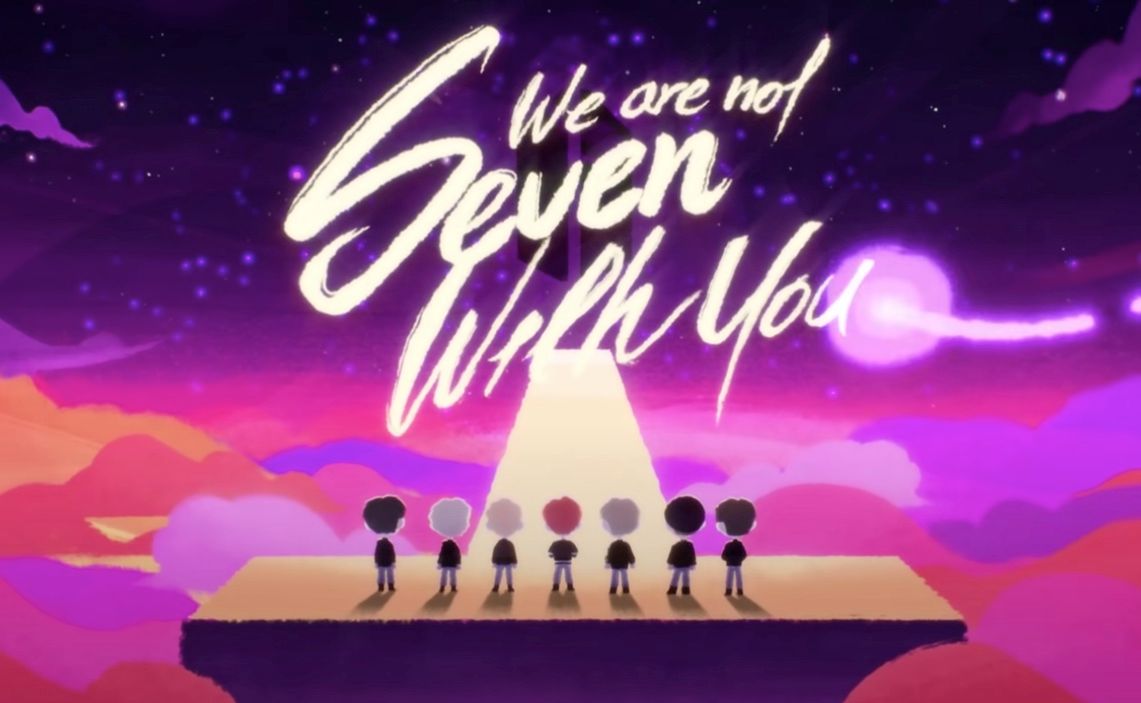
ARMY is very proud of the fact that they were one of the first fandoms in the world to have their own branding and logo; and how intimately it resembles a shield when combined with the BTS logo:
we are bulletproof hits hard when you realize that the bts and army logo forms a shield pic.twitter.com/muP97XDoam
— kass⁷ 🍒 (@jeonbubbles) June 11, 2020
Learn more about BTS logo and brand identity with this walk through by the designers on Behance:
